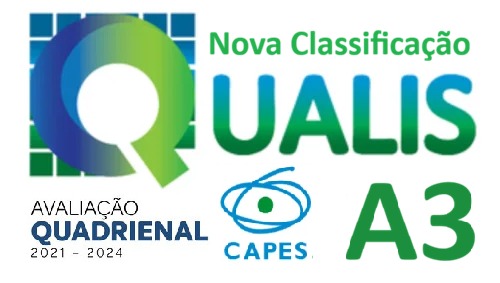Calibração de um sistema portátil para bioanálise de amostras de urina em situações de emergência
DOI:
https://doi.org/10.15392/bjrs.v7i3B.878Palabras clave:
monitoração interna, bioanálise de urina, resposta a emergênciaResumen
A bioanálise in vitro é utilizada para monitoração interna da exposição em situações de rotina e emergência. Este trabalho descreve a calibração de um sistema de deteção portátil para medição de radionuclídeos em amostras de urina utilizando-se fonte líquida padrão de 152Eu na geometria de 1L. A sensibilidade do sistema foi avaliada com base na dose efetiva mínima detetável para 103Ru, 106Ru, 134Cs, 137Cs e 60Co, utilizando-se o software AIDE e supondo o cenário de inalação. Exceto para o 106Ru, o sistema apresentou sensibilidade suficiente para medir atividades decorrentes de incorporações que resultem em doses efetivas abaixo de 1 mSv.
Descargas
Referencias
IAEA – INTERNATIONAL ATOMIC ENERGY AGENCY. Assessment of Occupational Exposure Due to Intakes of Radionuclides. Safety Report Series No. RS-G-1.2, Vienna, 1999.
IAEA – INTERNARTIONAL ATOMIC ENERGY AGENCY. Generic Procedures for Assessment and Response during a Radiological Emergency, IAEA-TECDOC-1162, Vienna (2000).
LI. C, ANSARI. A, ETHERINGTON. G, JOURDAIN. JR, KUKHTA. B, KURIHARA. O, LOPEZ. MA, MÉNÉTRIER. F, ALVES DOS REIS A., SOLOMON. S, ZHANG. J, CARR. Z,. Managing Internal Radiation Contamination Following an Emergency: Identification of Gaps and Priorities. Radiat Prot Dosimetry. Sep;171(1):78-84, 2016.
Descargas
Publicado
Número
Sección
Licencia

Esta obra está bajo una licencia internacional Creative Commons Atribución 4.0.
Licencia: los artículos de BJRS tienen una licencia internacional Creative Commons Attribution 4.0, que permite el uso, el intercambio, la adaptación, la distribución y la reproducción en cualquier medio o formato, siempre que se otorgue el crédito correspondiente al autor o autores originales y a la fuente, proporcione un enlace a la licencia Creative Commons e indique si se realizaron cambios. Las imágenes u otros materiales de terceros en el artículo están incluidos en la licencia Creative Commons del artículo, a menos que se indique lo contrario en una línea de crédito al material. Si el material no está incluido en la licencia Creative Commons del artículo y su uso previsto no está permitido por la regulación legal o excede el uso permitido, el autor deberá obtener el permiso directamente del titular de los derechos de autor. Para ver una copia de esta licencia, visite http://creativecommons.org/licenses/by/4.0/



























